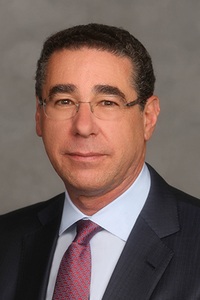De Caro & Kaplen partner Michael V. Kaplen, a three-term president of the Brain Injury Association of New York State, and professorial lecturer at law, teaching a course in brain injury law at the George Washington University Law School, discusses the important questions that parents, friends, sports coaches, teachers, and medical providers should be asking following a head injury, to ensure proper diagnosis, and a proper plan of care.
Asking the right questions following a head injury can lead to proper diagnosis and a proper plan of care.
The Center for Disease Control estimates that there are over three point five million Americans who will suffer a concussion each year.
Many of these individuals remain undiagnosed and subject to the risk of future concussions, future brain injuries, because their original concussion, or their initial concussion, did not fully heal.
These risks are enhanced because the proper questions weren’t asked.
First, understand that a concussion is a brain injury, oftentimes with long lasting or even lifetime consequences.
An individual who has sustained a concussion is more vulnerable to a second concussion if that happens before the first one is fully healed.
In sports, a player who sustains a second concussion before the first concussion heals is also subject to a condition known as Second Impact Syndrome.
This has deadly or sometimes catastrophic consequences to the individual.
So it’s important that physicians and other medical providers ask the right questions and get it right.
You do not need to lose consciousness in order to sustain a concussion.
So asking the question, “Did you lose consciousness?” will not lead to the important information that medical providers need to acquire.
Being dazed or confused are the hallmarks of a concussion. But people don’t say they are dazed or confused. They don’t say they lost consciousness.
So asking the questions, “were you dazed?”, “were you confused?”, “did you lose consciousness?” is not very helpful.
People don’t talk like this.
So what are better ways to ask these questions, to impart this important information to medical providers?
It is far better to ask “what is the last thing that you remember before this incident took place?” and “what is the first thing that you remember after this traumatic event took place” to determine whether or not a person lost consciousness.
You need to talk the language of the individual.
Instead of asking, “were you dazed or confused?”, listen to what the individual was saying.
Are they saying they saw stars? Are they saying that they felt like ants were crawling up their head? Are they saying that they felt stunned? Or felt like they were having an out of body experience? Were they confused and not sure what happened or where they were? Did they immediately have a headache? Were they feeling nausea or dizziness? Did they feel like vomiting?
These are all indicia of a concussion and can assist the medical provider and lead to a proper diagnosis.
As brain injury attorneys, we all need to know how to ask these important questions and how to carefully listen to our clients.
Because often the diagnosis was missed in the emergency room or even in a physician’s office.
And it’s up to us as attorneys to dig out the truth in order to substantiate our client’s claims.
Studies have shown in athletes important questions are not asked, and athletes are allowed to return to play prematurely, and proper records are not being kept of repetitive head trauma or repetitive concussions.
This, unfortunately, allows athletes to be subject to repetitive injury and long-lasting Damages.
Instead of asking “were you knocked out?”, how about asking the athlete, “did you ever have memory problems?”, “did you ever suffer from confusion?”, “did you ever receive a bump or a hit to the head?”, “did you ever see stars?”, “following a bump or a hit to the head, did you feel nauseous?”, “did you feel like vomiting?”, “did you feel pressure in your head?”
These are good questions that an athletic trainer, a coach, a teacher, a parent, and a medical provider should be asking in order to obtain a proper history.
Proper recognition of a concussion and proper medical care are essential for victims of concussions and other types of brain injury.
About The Author
Michael V. Kaplen represents victims of vehicle collisions, unsafe buildings and construction sites, and medical malpractice, and is a preferred attorney of The Brain Injury Association of America.
Michael is board certified as a Civil Trial Advocate and board certified in medical malpractice litigation. He is a Professorial Lecturer in Law, The George Washington University Law School, The Legal Aspects of Traumatic Brain Injury.
Michael is past chairman of the American Association for Justice (AAJ) Automobile, Highway and Premise Liability Section, past chairman of the AAJ Traumatic Brain Injury Litigation Group, three term president of the Brain Injury Association of New York State served two terms as chair of the New York State Traumatic Brain Injury Services Coordinating Council and vice-president, New York State Academy of Trial Lawyers.
He was invited by President Obama to participate in the White House Healthy Kids & Safe Sports Concussion Summit.
He is admitted to courts in New York, Florida, and Washington, DC. He has been selected as a New York Super Lawyer and recognized by Best Lawyers of America and U.S. News and World Report in personal injury law.
